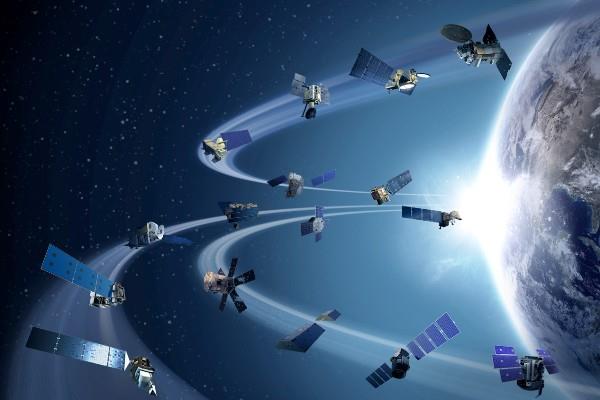
Step up Australia, we need a traffic cop in space
If we don't adequately manage the traffic of objects in outer space, many services on which we depend will no longer be available.
I argue that Australia should step up and fill this role. 'Space traffic management' could be an enduring, national beacon project to inspire and galvanise the Australian space industry. This will be particularly important as the Australian space agency builds momentum in 2018.
Read more:
The US is stepping backNon-functional orbiting objects are known as space debris. It's an and only likely to become worse, with plans to of small satellites to the current population of .
Right now, the US Air Force is trying to of the space traffic management role – a responsibility that it has previously assumed for the world by default. The US Federal Aviation Administration has said that it is , but there are to resolve, including control over assets, finances and human resources.
The Australian space industry, facilitated by the prospective Australian space agency, can seize this opportunity. We are well suited to play a role that will be valuable from a commercial perspective, and that will place us in a strong strategic position in the future global space industry and its governance.
Defining the problemThere's a fair amount of debate about the . At the very least it encompasses :
- what's up there orbiting Earth
- where orbiting objects are, in as near to real-time as possible
- whether they pose any risk of damage, such as a future conjunction between two objects, or interference, such as between the frequencies on which they transmit.
It could also encompass an advisory, or even directive, service to satellite operators to avoid collisions and avoid contributing to the existing space debris population. That implies that may be established.
Of course, satellites cannot physically stop at 'intersections', like we see in traffic management on Earth. But we could see development of means to , for example, by changing the orbit of space debris. That might be by another space object capturing and physically moving the space debris, or it could be done remotely, such as by a using photon pressure.
Australia is qualifiedWhile Australia has an active space industry, it is thinly spread. Government departments and agencies, universities, contracted aerospace companies (mostly large and foreign), local start-ups (mostly small) and some established Australian companies, all currently make up Australia's participation in the space industry.
The Space Industry Association of Australia presented a case for an Australian space agency in its March 2017 . From the current 0.8% share of a US$340 billion global space industry, the Australian space industry is forecast to grow to 4% within 20 years. That calculation assumes that the efforts of the Australian space industry can be coordinated and facilitated by an Australian space agency.
Now that an Australian space agency has , a key focus of the national space agency will be .
In respect of managing space traffic from Australia, here are some capabilities we already have.
Tracking sensors. Australia has a growing number of sensors for tracking objects in space, including , and . Australian companies such as have been developing the means to 'mine' the enormous amount of space-related data from radio astronomy sensors, notwithstanding that these were not originally designed with space traffic management in mind.
Moving debris. The is exploring how lasers for space object tracking based in Australia could be used for moving space debris at risk of colliding with active satellites. It also conducts other research to improve the quality of orbital predictions.
Read more:
Position reporting. The University of New South Wales has been conducting research into the use of and research to better understand and predict the . Drawing on the air traffic management analogy, it is also developing a .
Australia's reputation. Australia has a strong reputation in respect of and – we provide these services for more than of the Earth's surface by ourselves.
Historical and positive role in space. Australia has been active in the Committee on Peaceful Uses of Outer Space in 1959. Australian initiatives are given serious consideration by the international community, without the political polarisation that our superpower ally, the USA, can draw.
Australia is therefore not only well suited to contribute to space traffic management in a physical sense, but also in a regulatory sense – including facilitating the establishment of an appropriate regulatory regime.
Australia can benefitBoth and have advocated for the global strategic importance of normalising the space environment. This involves establishing regular and predictable patterns of behaviour through legal rules and less formal practices and procedures. It is also a matter of national strategic significance.
An international space regulator is almost certainly going to emerge in the next decade and is likely to have some sort of gatekeeper function, including ensuring safety and sustainability in space through effective space traffic management.
Whichever nations play an active part in this role stand to gain significant international influence, and also significant commercial opportunities. This is particularly important with the impending launches of whose operating satellites must be protected.
Australia can and should have a key part in global space traffic management.

Legal Disclaimer:
MENAFN provides the
information “as is” without warranty of any kind. We do not accept
any responsibility or liability for the accuracy, content, images,
videos, licenses, completeness, legality, or reliability of the information
contained in this article. If you have any complaints or copyright
issues related to this article, kindly contact the provider above.

















Comments
No comment